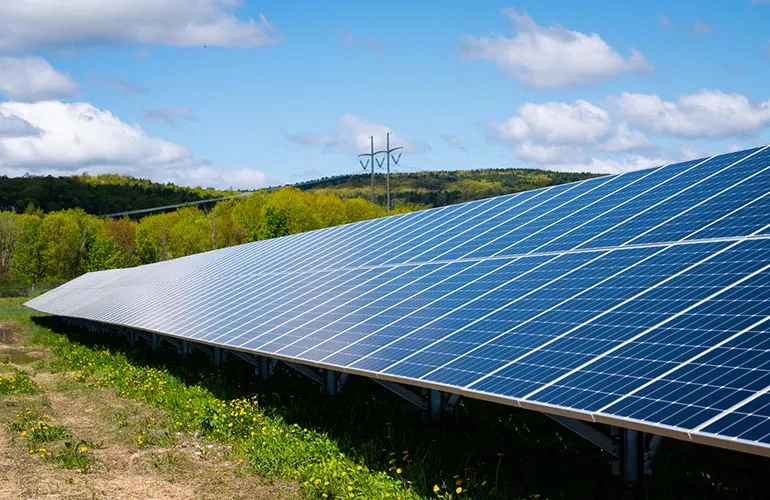Maryland bill to permanently expand community solar awaits governor's signature
- Maryland State Delegate Luke Clippinger (D-Baltimore City) revealed the passage of HB 908 on April 11, which, once signed into law by Gov. Wes Moore, will expand access to clean, dependable as well as affordable solar power for all Marylanders.

The bill, cross-filed with SB 613 led by State Senator Ben Brooks (D-Baltimore County), will attain this by changing Maryland's legacy community solar "pilot" program with a permanent, less limiting as well as much more equitable community solar program for the Old Line State.
" Because passing the pilot program's making it possible for legislation in 2015, community solar in Maryland has proven fruitful," stated Delegate Clippinger, primary co-sponsor of HB 908 along with the 2015 legislation (HB 1087). "By the time the program ends at the end of 2023, it will have brought sufficient solar capacity to sustain some 90,000 Maryland consumers. And with the passage of this legislation, we're one step closer to accomplishing the state's clean electrical energy goals in a manner that ensures the economic as well as economic benefits of community solar reach the communities where they'll matter the majority of."
Community solar projects are mid-scale solar energy generating centers typically sited on private land, commercial rooftops, landfills, commercial sites as well as various other recommended locations in proximity to the utility customers they're intended to serve, inclusive of those who rent their homes. Under Maryland's legacy community solar pilot program, Marylanders are afforded the choice to enroll as "subscribers" to community solar projects, wherein they are attributed savings on their utility bills that are based upon their share of the revenue generated by the project's energy sales.
" This legislation provides the marketplace with much-needed policy certainty for ongoing growth of community solar in Maryland. It leverages the momentum acquired from the pilot program as well as finest practices developed in various other states to cause higher as well as much more equitable access to the ecological and economic benefits of solar energy," said Charlie Coggeshall, Mid-Atlantic regional supervisor at the Coalition for Community Solar Access (CCSA).
The bill removes the pilot program's arbitrary cap on community solar in Maryland (≈ 580 MW) and also enables it to be a permanent dispersed generation alternative for consumers, alongside web metering. It relocates the market far from limits related to the types of projects that can be developed and also rather incentivizes the development of projects on a higher variety of sites, inclusive of commercial rooftops and industrial as well as brownfield sites, along with using agrivoltaics on farmland. Underlying all these projects is a new requirement to have at least 40% of capacity devoted to benefiting low-to-moderate income (LMI) customers. This will make certain that historically deprived Marylanders have equitable access to utility bill cost savings each time when inflated energy prices are driving up household energy costs.
" Community solar is an ideal tool for attaining clean power and equity goals for the state, as well as this bill expands the program at a unique time where it can leverage the billions of dollars in funds recently provided by the united state Rising Cost Of Living Decrease Act," claimed Senator Brooks. "Most notably, the LMI subscriber as well as siting provisions of the bill strengthen the business instance for targeting Maryland's overloaded and also underserved communities."
Also read

